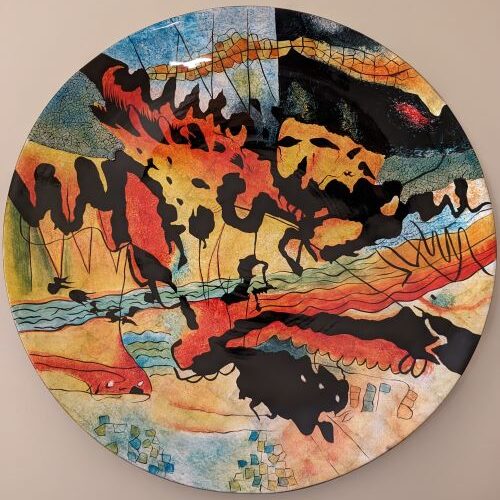Writers often happily and productively write on their own. But it’s not always fun or easy to do so. This is where writing groups come in. Besides providing a wonderful community of creative friends, they provide individual writers with structure, discipline, inspiration, and motivation. In other words, they hold our feet to the fire when our writing spirits lag.
Join a group or start one?
Existing group: There may be an existing writing group to join — one that is friendly, welcoming, and, most of all, supportive. Supportive means more than encouraging; it means the group offers helpful, kind, constructive comments. Nothing critical. I repeat, nothing critical, unless you are already a group of battle-tested, alligator-skinned writers — not my kind of group.
Start a group: If there is not an existing group, how about forming one? A new group needs a leader. A leader whose various skills include some degree of organizing, planning, and community building. A leader who is personally friendly, welcoming, and can encourage, inspire, and motivate writers. BTW: as with all groups, leaderless groups limp along and ultimately fail. Giving the group a name may not seem important, but it does provide an identity and encourage cohesiveness.
How a writing group functions: groups will vary depending on the leader and the members’ wants, needs, and skills. It’s best to have a set schedule whether it is monthly or weekly. Regardless of how often the group meets, members normally wait until the last minute to write the piece they plan to share. Yup, procrastination and busy schedules. The finally-written piece is brought to the group to read out loud while the others thoughtfully and carefully listen. Listeners then offer friendly comments. It would be more helpful if the comments were content-oriented about the writing itself, but usually they are more along the line of what in Minnesota is called being “Minnesota nice”. And that’s OK.
A word or two about listening: One of the most important lessons I learned in facilitating writing groups is to share good listening skills including: paying attention to the writer and not a cell phone; not interrupting by coming late or leaving early, or walking in and out of the room while a writer is reading out loud; not being a “conversation hijacker”. A conversation hijacker? That’s when, for instance, someone starts to tell you about their last visit to Mayo Clinic or New York City, and you interrupt, taking over the conversation with your own story. You have now hijacked the conversation, a very annoying and conversation-ending action. In writing groups, not being a conversation hijacker means that when you’re offering comments, that you don’t use the writer’s piece to launch into something about yourself instead of staying focused on the writer. As the Italians would say, Capisci?
A list of Jane’s writing groups for the historically minded (2014 to 2024):
“The Joy of Writing” at Fountain of the Sun, Mesa, Arizona
“The Village Writers” at Twin Lakes Village, Rathdrum, Idaho
Memoir -Writing group #1 at Rathdrum, Idaho library
Memoir-Writing group #2 at Rathdrum, Idaho library
Memoir-Writing group #3 at Village on the Green, Cottonwood, Arizona
Memoir-Writing group #4 at 125 Live, Rochester, Minnesota
Memoir-Writing group #5 at 125 Live, Rochester, Minnesota
Memoir-Writing group #6 at 125 Live, Rochester, Minnesota
“M&Mers” (Memoirists & More), Rochester, Minnesota
“Ridge Writers” at Fairway Ridge, Rochester, Minnesota
“UU Reflections” at First Unitarian Universalist Church, Rochester, Minnesota (co-facilitate with Debi Neville)
“Friends of Storyworth” at 125 Live, Rochester, Minnesota started March, 2024. It meets every Wednesday of odd-numbered months. During even-numbered months class members are on their own. However, everyone has a writing buddy to keep on track and they can always contact Jane. New members can join the class at the beginning of odd-numbered months.
